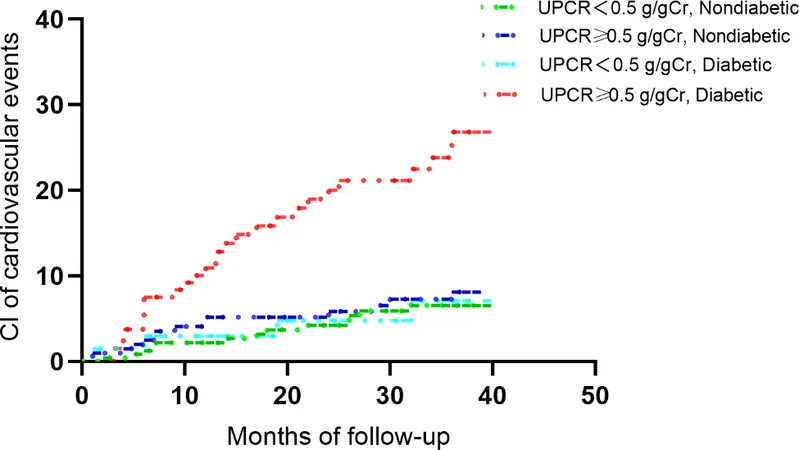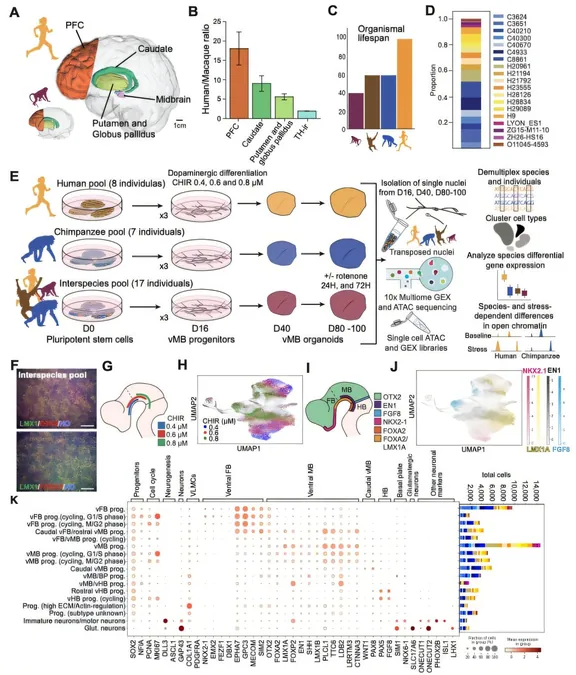
The Alarming Link Between Proteinuria and Diabetes: Are You at Risk for Cardiovascular Events?
2024-11-18
Author: Noah
Research highlights from a recent cohort study reveal a concerning interaction between proteinuria and diabetes, significantly increasing the risk of cardiovascular events in patients with chronic kidney disease (CKD). This study, conducted in Japan, sheds light on essential health insights that could impact millions around the world.
Overview of the Study
The research focused on 639 individuals diagnosed with CKD stages 2 to 5, enrolled from 2010 to 2011. Using Cox proportional hazards models, scientists explored how the urinary protein-to-creatinine ratio (UPCR) interacts with diabetes, affecting cardiovascular risk.
Key Findings
During an average follow-up period of three years, it was discovered that 59 participants experienced cardiovascular events. The study revealed that those with proteinuria had over twice the risk (hazards ratio [HR]: 2.16) compared to individuals without proteinuria. Remarkably, diabetic patients had an even greater risk (HR: 2.53), showing how diabetes compounds health threats.
The real alarm bell rang for those with both proteinuria (at UPCR levels of 0.5 g/gCr or higher) and diabetes; they faced a staggering 4.09 times higher risk of cardiovascular events than their counterparts without both conditions.
Why You Should Care
Cardiovascular disease (CVD) remains the leading cause of death globally, with diabetes as a significant contributor to heart-related complications. Interestingly, even when risk factors like smoking, hypertension, and dyslipidemia are managed, individuals with diabetes and CKD are left with a high residual risk. This finding elaborates how proteinuria exacerbates cardiovascular threats in diabetic populations, emphasizing the urgent need for better disease management strategies.
A Broader Context of Risk Factors
The association between proteinuria and CVD isn't new, but the compound effect with diabetes presents new angles for preventative strategies. Studies show that individuals with severe proteinuria have a CVD risk four to five times greater than those without it. This dynamic warrants serious consideration from healthcare providers, especially since patients often become increasingly vulnerable due to the overlapping complications of diabetes and kidney disease.
Additionally, the study emphasizes the importance of addressing lifestyle factors and managing blood pressure to lower cardiovascular risks effectively. With nearly 50% of adults over 65 suffering from at least one type of cardiovascular disease, understanding these dynamics has critical implications for public health initiatives.
Conclusion: What Do These Findings Mean for You?
For patients grappling with diabetes and CKD stages 2-5, the imperative is clear: regular monitoring of protein levels and vigilant diabetes management can be life-saving. As the study proposes, health providers should adopt combined monitoring and treatment approaches, potentially utilizing newer therapies like sodium-glucose co-transporter 2 (SGLT2) inhibitors, proven to reduce cardiovascular risks in patients with these comorbid conditions.
Final Thoughts
With cardiovascular disease on the rise and the clear links between proteinuria, diabetes, and CVD, individuals and healthcare systems must prioritize these insights. Early detection and comprehensive management are not just beneficial—but essential in combatting the burgeoning epidemic of cardiovascular feasts fueled by preventable conditions. So, if you or someone you know is battling diabetes or CKD, don’t delay – consult your doctor today for a proactive health strategy!









 Brasil (PT)
Brasil (PT)
 Canada (EN)
Canada (EN)
 Chile (ES)
Chile (ES)
 España (ES)
España (ES)
 France (FR)
France (FR)
 Hong Kong (EN)
Hong Kong (EN)
 Italia (IT)
Italia (IT)
 日本 (JA)
日本 (JA)
 Magyarország (HU)
Magyarország (HU)
 Norge (NO)
Norge (NO)
 Polska (PL)
Polska (PL)
 Schweiz (DE)
Schweiz (DE)
 Singapore (EN)
Singapore (EN)
 Sverige (SV)
Sverige (SV)
 Suomi (FI)
Suomi (FI)
 Türkiye (TR)
Türkiye (TR)